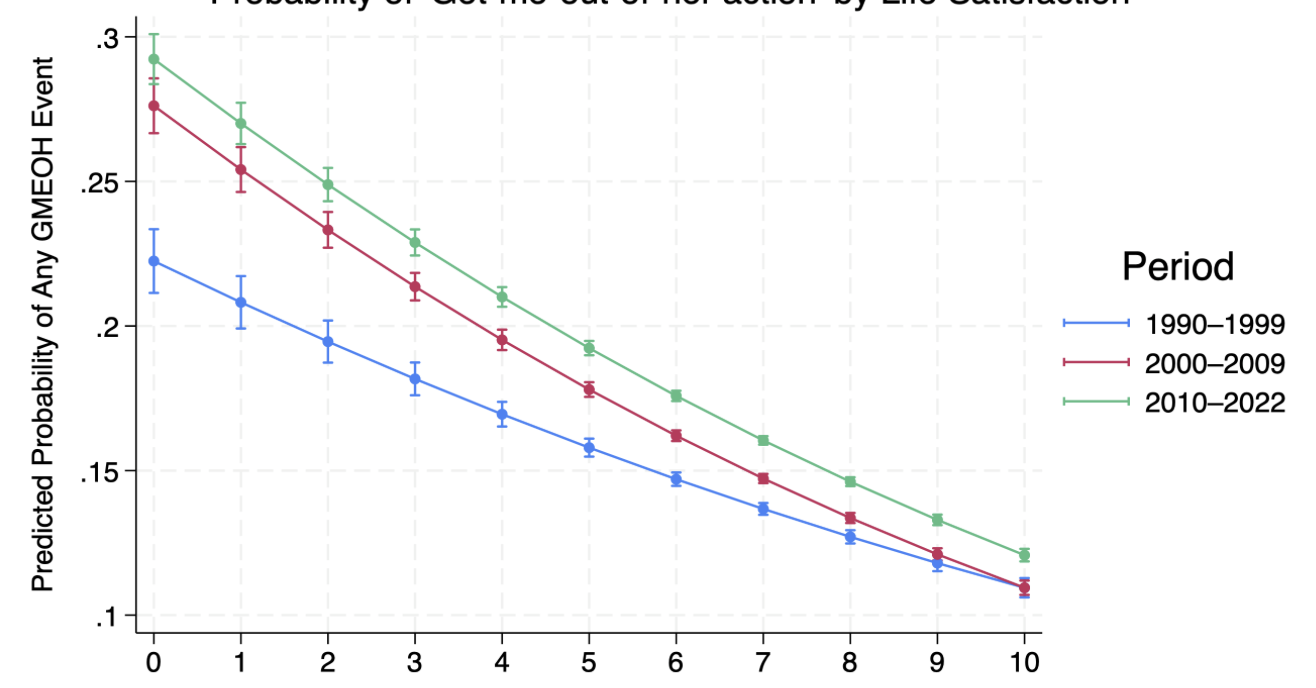In recent months, the CEOs of leading AI companies have grown increasingly confident about rapid progress:
* OpenAI's Sam Altman: Shifted from saying in November "the rate of progress continues" to declaring in January "we are now confident we know how to build AGI"
* Anthropic's Dario Amodei: Stated in January "I'm more confident than I've ever been that we're close to powerful capabilities... in the next 2-3 years"
* Google DeepMind's Demis Hassabis: Changed from "as soon as 10 years" in autumn to "probably three to five years away" by January.
What explains the shift? Is it just hype? Or could we really have Artificial General Intelligence (AGI)[1] by 2028?
In this article, I look at what's driven recent progress, estimate how far those drivers can continue, and explain why they're likely to continue for at least four more years.
In particular, while in 2024 progress in LLM chatbots seemed to slow, a new approach started to work: teaching the models to reason using reinforcement learning.
In just a year, this let them surpass human PhDs at answering difficult scientific reasoning questions, and achieve expert-level performance on one-hour coding tasks.
We don't know how capable AGI will become, but extrapolating the recent rate of progress suggests that, by 2028, we could reach AI models with beyond-human reasoning abilities, expert-level knowledge in every domain, and that can autonomously complete multi-week projects, and progress would likely continue from there.
On this set of software engineering & computer use tasks, in 2020 AI was only able to do tasks that would typically take a human expert a couple of seconds. By 2024, that had risen to almost an hour. If the trend continues, by 2028 it'll reach several weeks.
No longer mere chatbots, these 'agent' models might soon satisfy many people's definitions of AGI — roughly, AI systems that match human performance at most knowledge work (see definition in footnote).
This means that, while the compa



Great points here.
My problem with post mortem or investigations is that it is late of a reaction, EA image has been tarnished and the total cost of a scandal could not be computed. I still believe that installing a dedicated governance team reviewing all of the major risks where inflows and outflows of money is involved is still a better approach.
Requiring and reviewing financial statements audited by a big 4 firm is still the best approach if a certain charity/Non profit org is receiving a donation - assuring that the donor is doing its best to comply with international or American accounting standards. Audited FS submissions also solves the tax haven comment you shared though I believe legitimate companies still do have accounting standards and audit standards especially as they still need to engage in the business world. It was described that SBF has a backdoor mechanism in their books that evaded executives, accountants and auditors - if this is true, the tax haven issue is not the culprit. Btw, I live in the nearby Cayman Islands and we still do accounting here following International Accounting Standards.
I have no problems with strong inter institutional cooperation but it still needs some kind of system to work with like who plays the lead and the follower in certain scenarios